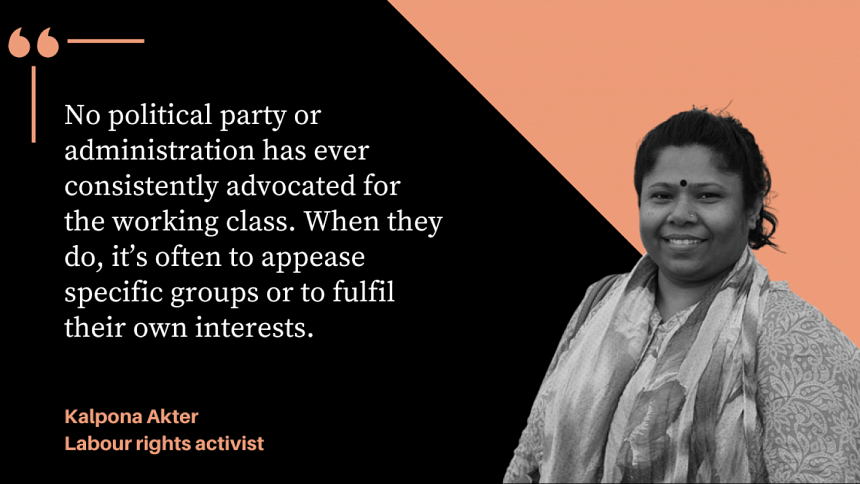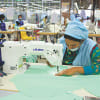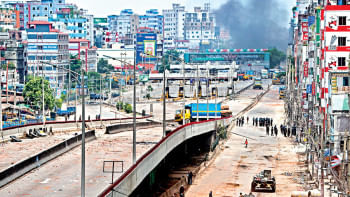What's causing the unrest among factory workers?

What is causing the current wave of protests by factory workers?
Although the government accepted all 18 demands of RMG workers in late September, communication of the announcement, as well as the implementation, remained problematic. For example, demands such as increasing the tiffin allowance have not been adequately communicated to all the factories. Additionally, some factories showed reluctance to comply with the directive. In Ashulia, most factories accepted the directive, but in places like Gazipur and beyond, we noticed that the directive was not properly communicated and owners, too, were reluctant to comply.
Another issue regarding unpaid wages arose in several factories where the owners are currently absconding. Those aligned with or sheltered by the previous regime fled after the political shift or change in the government. As a result, there is no clear directive regarding who should control these factories, who will pay the wages, or who will uphold workers' rights. No clear instructions are available either from the factory authorities or from any government office or ministry. There is ambiguity regarding who is responsible—should it be the metropolitan police, the industrial police, or the military personnel, who were recently given temporary magistracy power?
Even though the military has, in many cases, attempted to locate owners and ensure wage payments, they, too, face challenges, as handling such matters is not part of their usual protocol. The industrial and local police, traditionally responsible for these matters, now appear hesitant. They always seem to be waiting for military intervention. Their fear of retribution because of past misuse of power remains unresolved. However, it will be unjust to blame workers for this fear, because the police themselves once misused the law and now hesitate to act due to concerns of retaliation.
Is there a political aspect influencing these labour issues?
Many factory owners were previously affiliated with the former ruling party, the Awami League or enjoyed AL's political shelter. Besides, many use the RMG industry, the largest in Bangladesh, to gain political advantage. By inciting a bit of unrest, one can easily capitalise on this politically or advance specific political goals, by scapegoating the workers. In this sense, workers are being used to further a political agenda, and we have observed such issues arising within the labour sector.
We see a similar problem in the scrap clothing industry, although the government has tried to mitigate the problems. Recently, disputes have broken out between two factions of the BNP over the scrap-based apparel business and there were similar unrests in Chattogram, Ashulia, and Gazipur. Unless this political conflict is addressed, a third party will continue to exploit workers for its own interests, making effective problem-solving even harder.
What steps could improve the situation between workers and factory owners?
Communication between factory owners and workers is essential to bridge the gap. Without clear communication, the distance between workers and owners will only grow. The best approach to reducing this gap is to allow workers to freely exercise their union rights. If workers can unionise freely and exercise their bargaining rights, it would significantly decrease external confrontations, enabling discussions to occur within the factory premises rather than on the streets.
One major unresolved issue remains—the demand for wage re-evaluation. For the past two to two-and-a-half months, workers have been demanding a wage increase. The government has set a deadline until December, and a committee has been established to address this issue. If this committee can work efficiently and produce a viable solution, it may bring calm to the industry in the coming days. I believe that the committee should recommend an increase in wages, taking into account workers' quality of life as well as the financial capacity of the industry. If the committee can provide a fair recommendation based on these factors, and the owners and government agree to it, then the wage increase may finally bring about the peace that workers seek in the industry.
Do you feel that any government has proactively supported workers in the past, even before any demands were raised?
No political party or administration has ever consistently advocated for the working class. When they do, it's often to appease specific groups or to fulfil their own interests. Throughout my career, I have never witnessed a government that voluntarily stepped up to improve workers' conditions. No administration has come forward with a dedicated plan to enhance workers' rights, nor has any government truly addressed workers' issues beyond verbal promises.
If this interim government disregards the importance of labour issues, they will be making a big mistake. Out of Bangladesh's 17 to 18 crore people, almost 7.5 crore belong to the labour force, across all levels, including white-collar employees. Ignoring their concerns is not an option; the government should sit down and engage in dialogue with representatives of the labour force.
In an ideal world, we would see political representation for workers, similar to the Labour Party in the UK. Though left-leaning groups in our country claim to represent the working class, throughout our history, we have not seen them being vocal in parliament. Labourers still have not reached the point where they can form their own political party or hire political representatives. However, an avenue should exist for workers to have a political voice. Otherwise, those of us in marginalised communities will continue to be left behind.
Follow The Daily Star Opinion on Facebook for the latest opinions, commentaries and analyses by experts and professionals. To contribute your article or letter to The Daily Star Opinion, see our guidelines for submission.


 For all latest news, follow The Daily Star's Google News channel.
For all latest news, follow The Daily Star's Google News channel. 









Comments